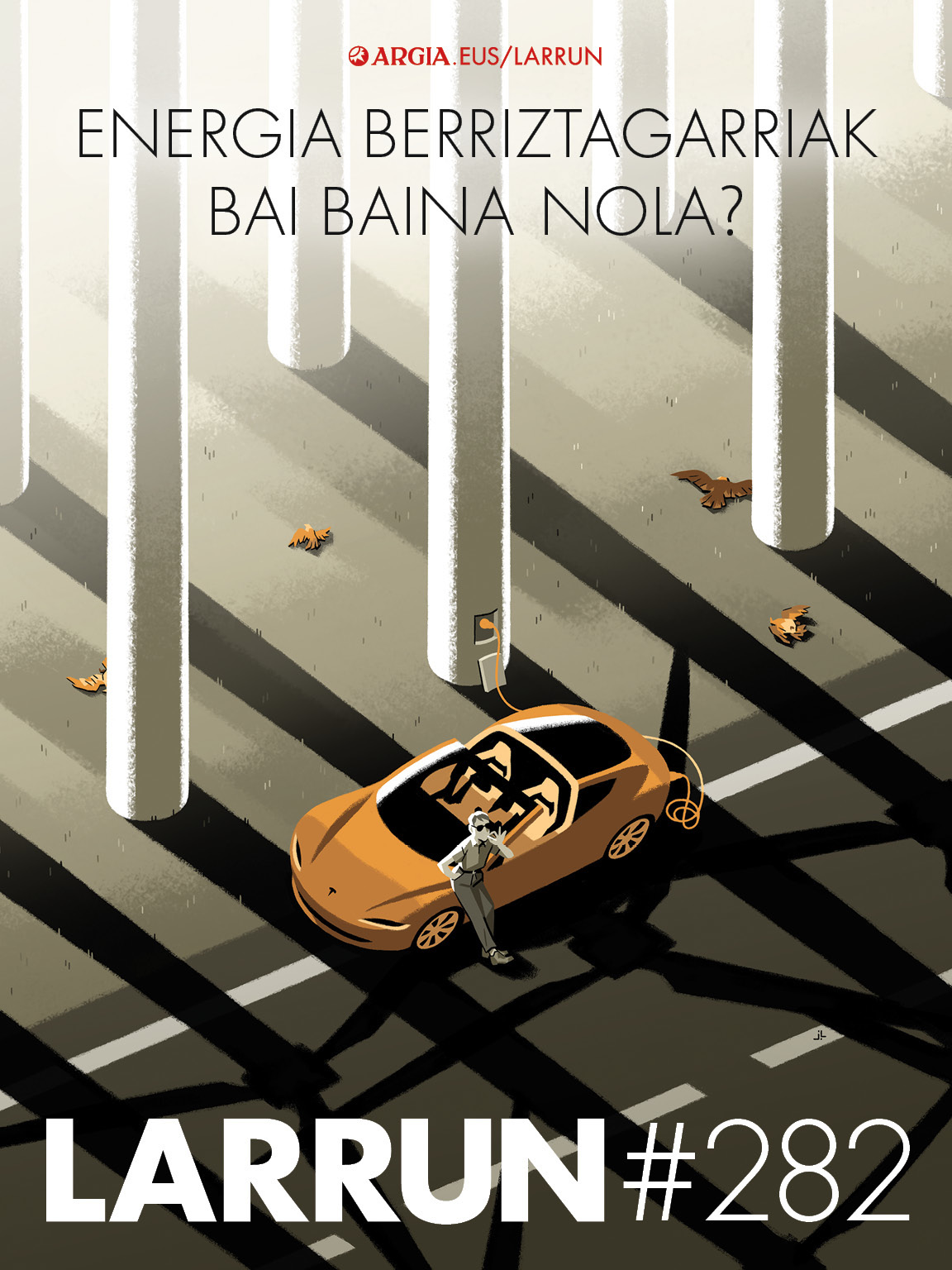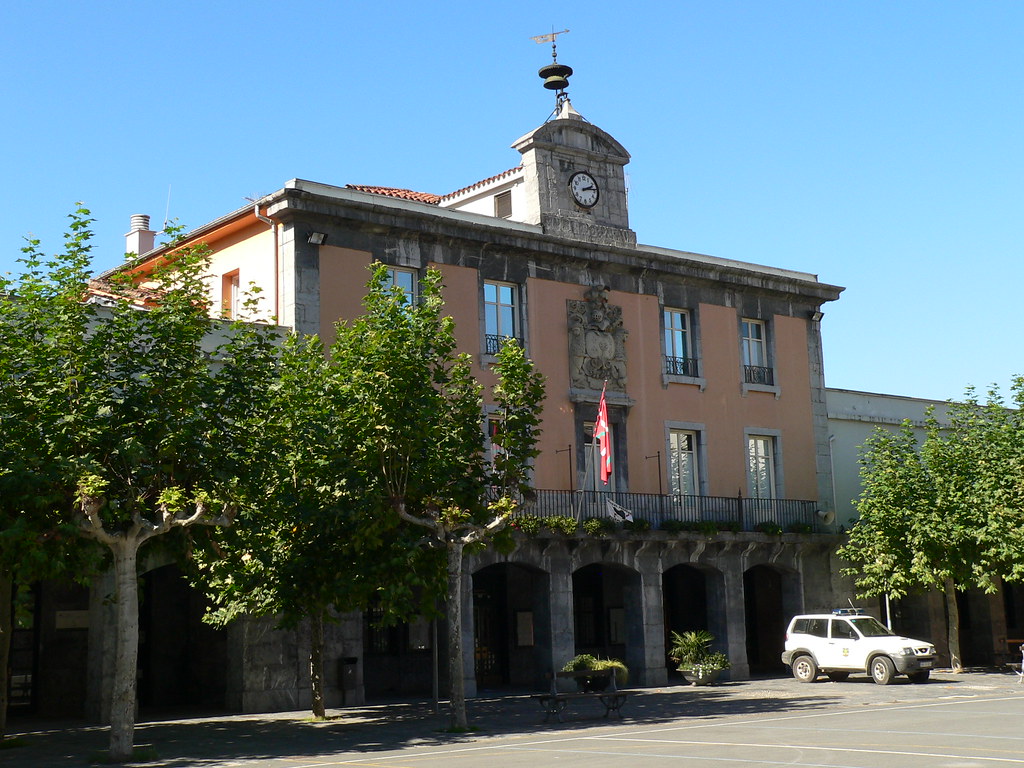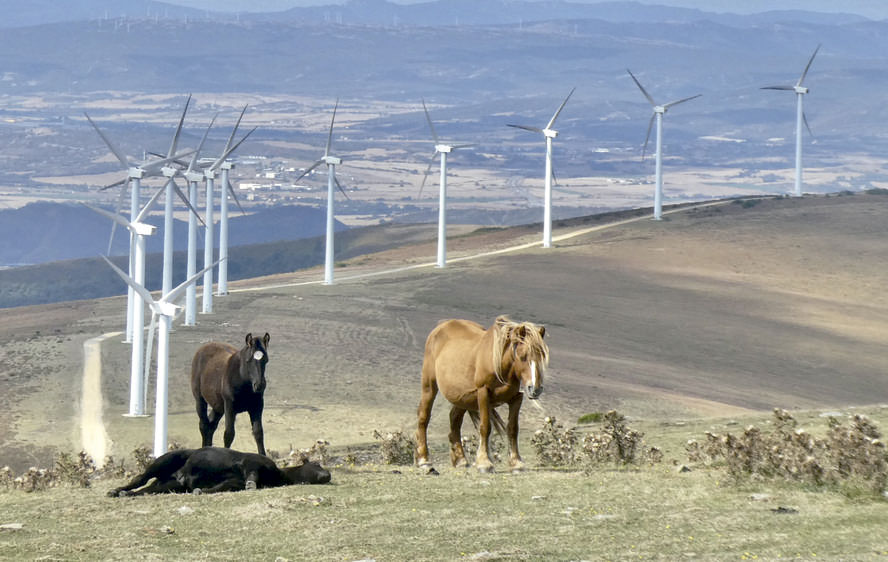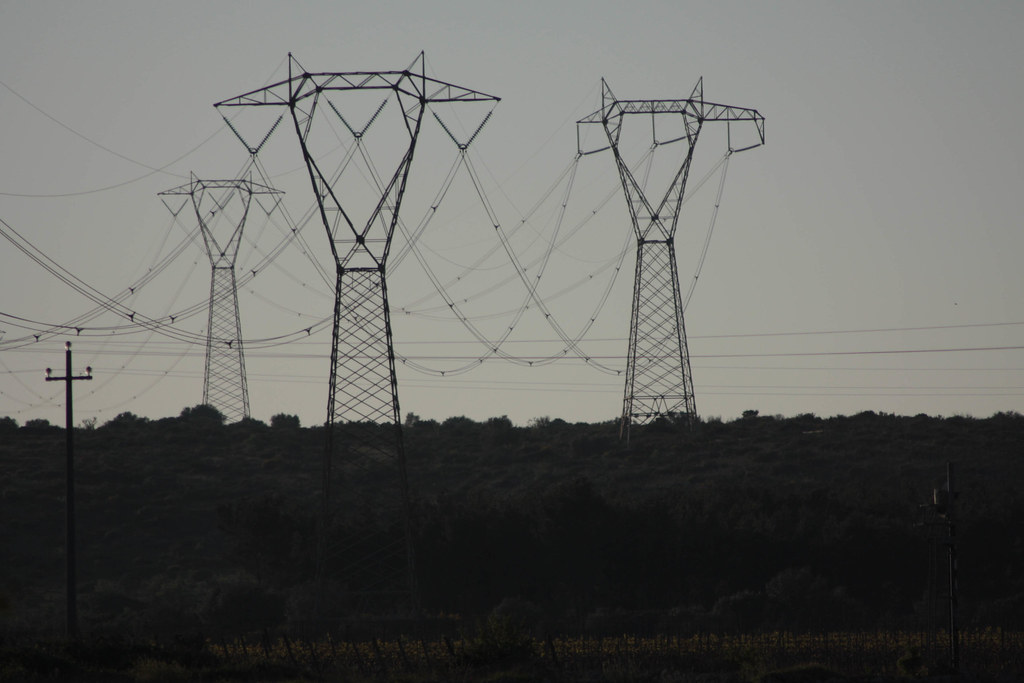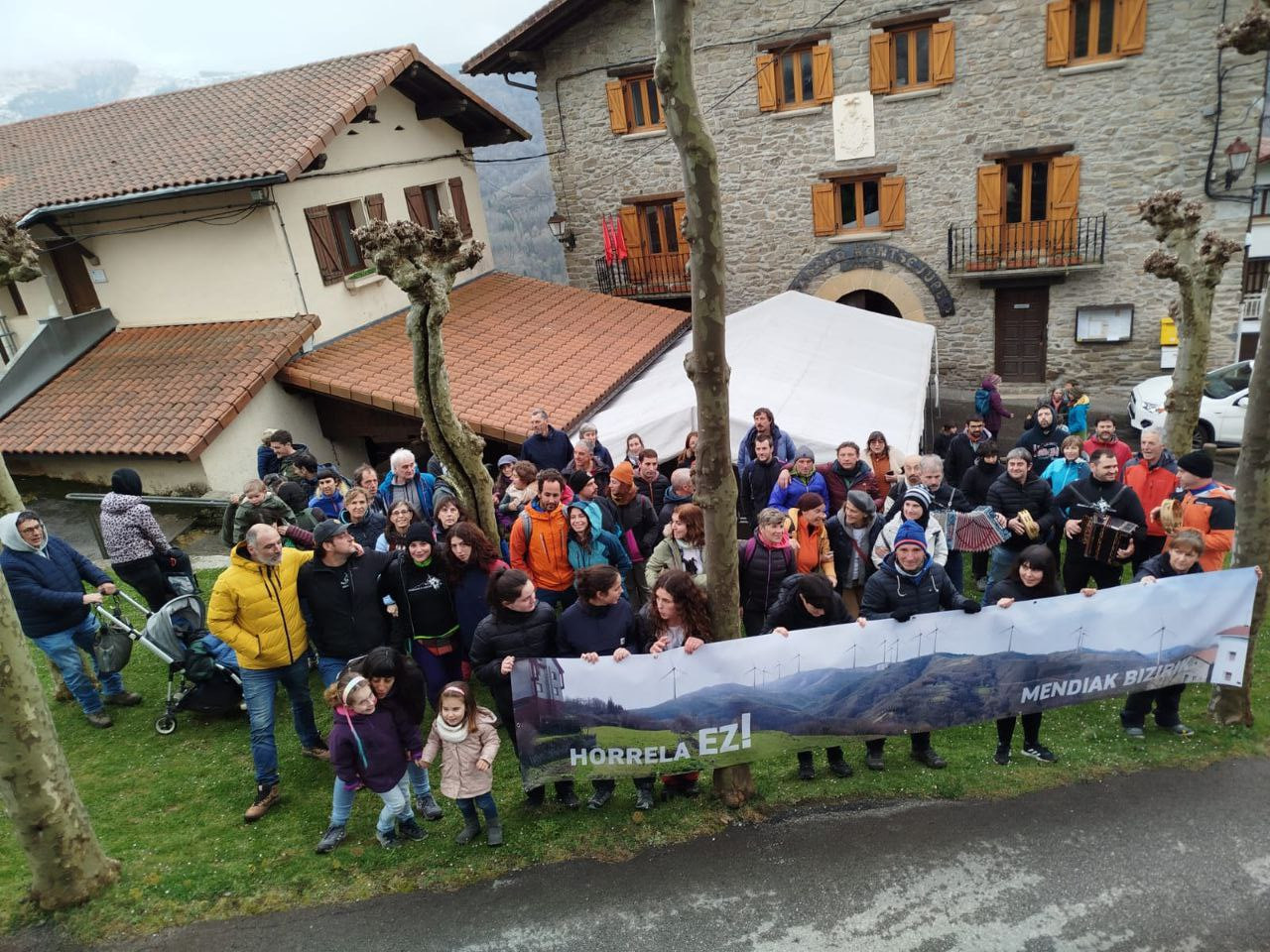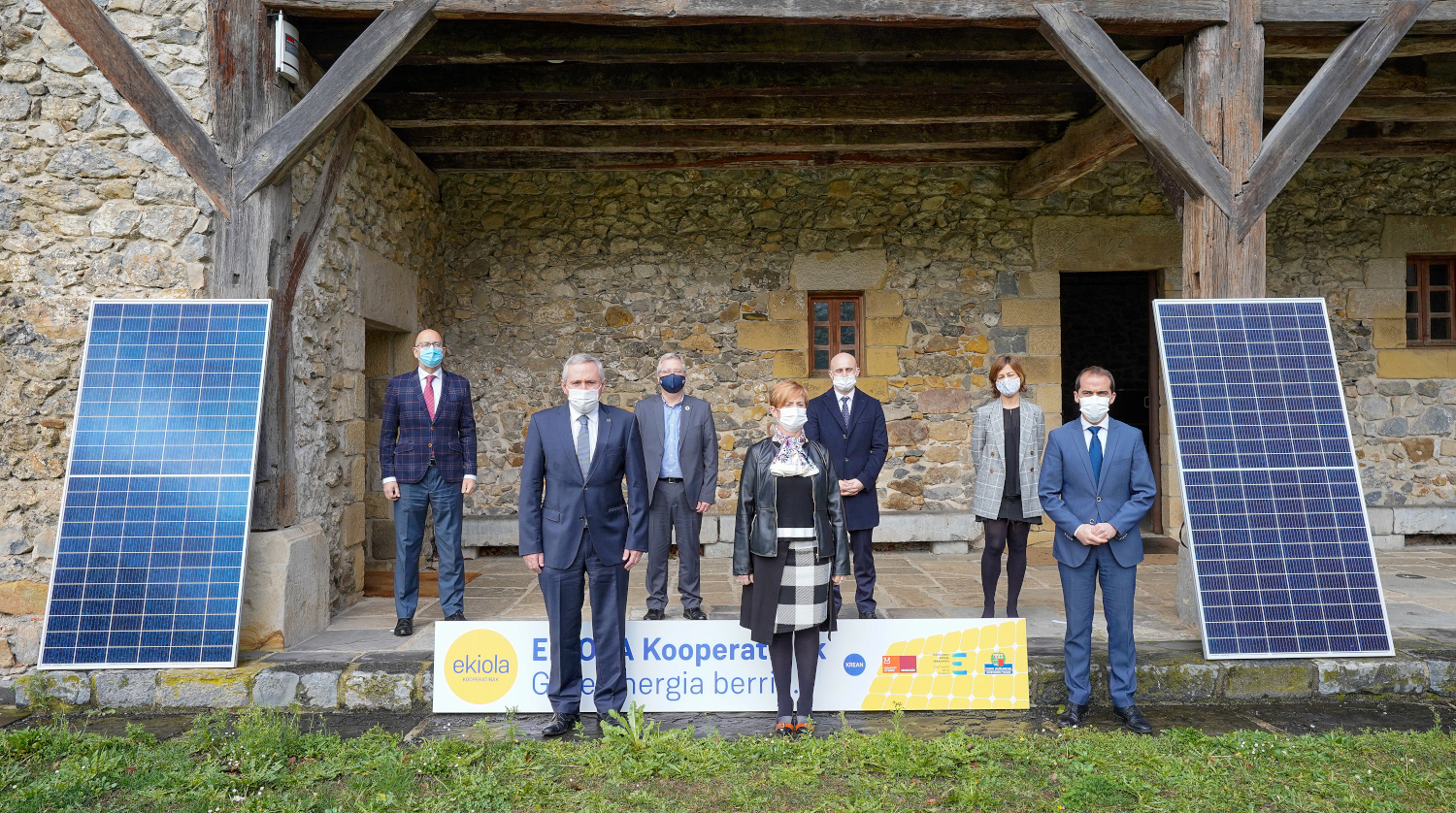The fight against mega-projects must not be against renewables, but by restraint
- The 20th century, which thanks to oil and nuclear energy was "invisible" in our corners, is now closed, but on a social level we have not realized it. In this emergency situation, the decision-makers place the plough on oxen, and the projects of large structures, sometimes literally scourge the margins: some means can be deeply altered by mega projects or mineral deposits. To be aware of the problem, it is very important to differentiate the issues: how much to produce, what, how and who decides all that. On this basis real energy sovereignty will be made possible.
According to the IPCC (Intergovernmental Panel on Climate Change), a fair transition is essential to avert climate catastrophe. In other words, the effort of change should not be imposed primarily on the poorest: the level of social justice of the transition determines the very material effectiveness of the transition. This means correcting consumption imbalances: in order to achieve the French State’s greenhouse gas (GHG) emission reduction target by 2030, the poorest 50% will have to reduce their emissions by 3% and the richest 10% by 61%.
In addition to correcting this imbalance, it is essential to analyse the level of structural consumption: thermal insulation of buildings and underdeveloped public transport in areas such as the Northern Basque Country is a priority. In these areas we are a long way away: if the isolation objectives of Grenell 2008 had been met, the equivalent of gas imported by France would be saved by February 2022. The least polluting energy is the energy that is not used. Only once unnecessary consumption has been identified and reduced can we think about how much and how to produce, focusing on ecological and social sustainability.
In the Northern Basque Country there is a great potential for photovoltaic energy, starting with artificial or degraded areas: roofs, parking lots, quarries, port area of Baiona, highway area. It must be clear that, even if all these areas are used and our needs are adjusted, the area will be insufficient and the contribution to cultivation is necessary. To this end, there are systems that allow food production and electricity production, without land artificialisation (e.g. kiwis and adaptable to other production). Solar must be accompanied by wind energy to compensate for its periodicity. To do this, there are non-brutalist models, which do not destroy the corners. They will not, however, be invisible, and that should lead us to be restrained: the fight against mega-projects must not be against renewables, but by restraint.
The fecal waters of urban areas can be used to produce methane, use wood biomass moderately in rural areas, heat pumps in the sea for housing... To build a solid model, it is necessary to be multiple and in collaboration with the population. We are very close, but it can also be an advantage to avoid some known errors and not to allow the expansion of the model of oligopolistic megaprojects to create our own model with citizen participation.
Energiaren Nazioarteko Agentziak (IEA) astelehenean argitaratutako txostenaren arabera, %2,2 igo da energia eskaria 2024an aurreko urtearekin alderatuta, besteak beste, egiturazko arrazoi hauengatik: beroari aurre egiteko argindar gehiago erabili beharra, industriaren kontsumoa... [+]
Arratzua-Ubarrundiako "Proiektu honi ez!" plataformak adierazpen hau kaleratu du, udalerri horretako EH Bilduko hiru zinegotziek dimisioa aurkeztu berritan. Izenburu hau darama testuak: "EH Bilduren moketako politika edo Iparra nola galdu".
Arratzua-Ubarrundia (Araba) herriko EH Bilduko hiru zinegotziek dimisioa eman dute Solariaren zentral fotovoltaikoagatik. Hau da hiru zinegotziek, Txetxu Zengotitabengoak, Laura Sanchok eta Javier Ruiz de Arkautek, herritarrei zuzendu dieten agur mezua.
Eusko Jaurlaritzak eta Arabako Foru Aldundiak Datu Zentroen instalazioei ateak irekitzen dizkiete horiek arautzeko legedia sortu aurretik. Bilbao-Arasur Dantu Zentroarekin, bere lehen fasea gauzatuta, eta instalatzea amesten duen Solariaren Datu Zentroarekin, 110.000 m2... [+]
Otero jauna, garai honetan artzain honek ez du tarte handirik izaten ezertarako, justuan ibiltzen naiz, baina gaurkoan ezin utzi erantzun gabe zure azken kolaborazioa. Izan ere, sortu didan egonezinak pisua du. Haserrea ere astuna egiten zait. Ez pentsatu, ordea, dela zenbait... [+]
Martxoak 15 goizean elurrak zuritu zuen Arano. Bertako herritarrek eta ingurutik eta ez hain ingurutik bildutakoek bete zuten plaza eta elkartasunaren beroan gozatu zuten eguna: Urumeako mendietan ezarri nahi duten Euskal Herriko zentral eoliko handienaren kontrako protesta izan... [+]
Susmoa dut komunitatea hustuketa prozesu betean dagoela, eta beldur naiz, beste askori gertatu eran, mamirik gabeko bilgarri ez ote den bilakatuko, jada bilakatu ez bada. Ikustea besterik ez dago, komunitatearen izaera holistikoa gero eta modu lausoagoan heltzen da, eta Che... [+]
Herriko EH Bilduko zinegotzi eta legebiltzarkide den Ander Goikoetxeak egindako galdera parlamentario bati Jaurlaritzak emandako erantzunaren bidez jaso informazioa hau. Bi haize sorgailu ezartzeko asmoa dago eta Cluster Hernani izeneko proiektu zabalago baten barruan kokatzen... [+]







